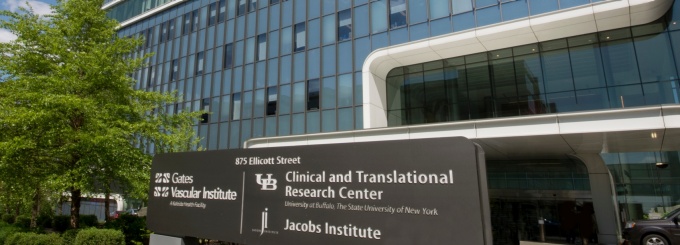Translational Research

The CMHRI collaborates with the CTSI to advance translational studies and improve health outcomes within our community.
At the CMHRI, translational science bridges the gap between discovery and impact transforming laboratory breakthroughs into real-world solutions for children, mothers, and families. Our researchers work across disciplines to accelerate the development of diagnostics, treatments, and preventive strategies by integrating basic science, clinical research, and community health. From bench to bedside and beyond, CMHRI’s translational efforts ensure that innovation leads to improved care, health equity, and lasting change.
- Pediatric Immunity and Vaccine Development – Mark D. Hicar, MD, PhD
Hicar is a pediatric infectious disease specialist, leads translational research focused on B cell and antibody responses to infectious diseases in children. His work aims to harness immune mechanisms to inform better diagnostics and vaccine strategies. Hicar's team is advancing research on Kawasaki disease by using antibodies to investigate potential infectious triggers. His translational portfolio includes active trials and development projects on a pediatric Lyme disease vaccine, an RSV (respiratory syncytial virus) vaccine, and a CMV (cytomegalovirus) neuro-developmnetal study. As a practicing physician, Hicar brings clinical insight to emerging infectious threats such as measles, influenza, and SARS-CoV-2, bridging basic science with clinical applications to improve child health.
- Maternal Health Equity and Postpartum Hypertension – Thaddeus P. Waters, MD (PCORI-Funded)
Waters is leading UB’s participation in a groundbreaking $18.8 million multi-center study funded by the Patient-Centered Outcomes Research Institute (PCORI), with UB receiving $3.7 million. The study focuses on improving detection and management of postpartum hypertension and mental health issues among 6,000 women, primarily from Black, Latinx, and American Indian communities, across three sites, including Oishei Children’s Hospital. The study compares two innovative care models: remote home blood pressure monitoring, virtual clinical visits, and mental health screenings; and a second incorporating trained community health workers using trauma-informed, anti-racist approaches to address social determinants of health. This translational work aims to reduce maternal morbidity and mortality by bridging clinical care with culturally sensitive, community-based support systems.
- Community-Based Health Interventions – Sarah J. Ventre, MD, MPH
Ventre’s outreach work targets social determinants of health through community partnership models. Her initiatives provide prenatal and pediatric care in marginalized neighborhoods, translating research on access and equity into real-world improvements in maternal and child outcomes creating an essential link between clinical science and population health.
- Neonatal Resuscitation Innovation – Praveen K. Chandrasekharan, MD
Chandrasekharan's NIH-funded research evaluates novel strategies to optimize neonatal resuscitation. By translating lab-based models into bedside interventions, his work has direct implications for improving survival and outcomes in premature and critically ill infants. Nationally recognized for his work, funded by an R01 grant from the Eunice Kennedy Shriver National Institute of Child Health and Human Development within the NIH, Chandrasekharan was awarded Physician of the Year Award from WNY Perinatal Bereavement Network.